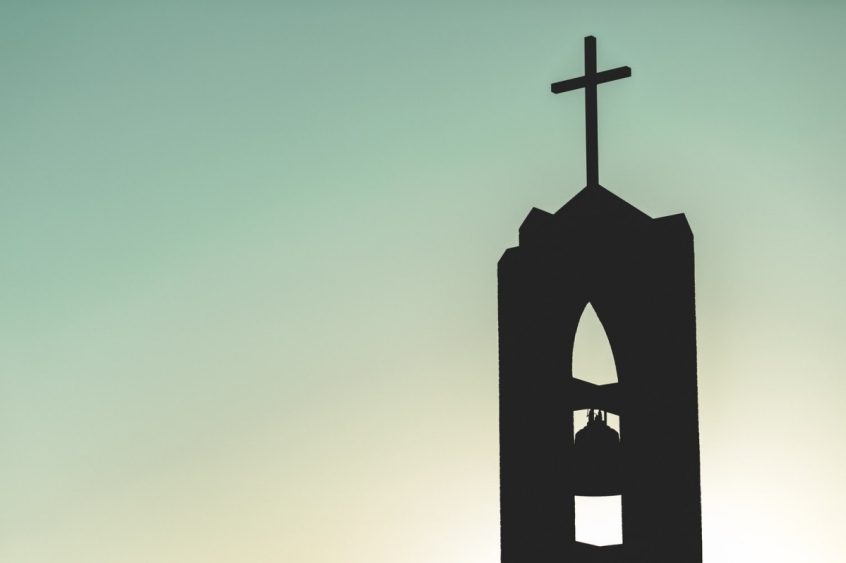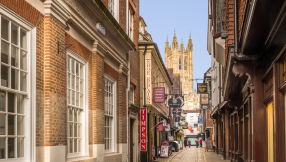
The House of Lords has held a symposium to mark a year since the release of the Bishop of Truro's review into persecution.
The final report of the review, commissioned by former Foreign Secretary Jeremy Hunt, warned of "shocking" levels of persecution, with almost 250 million Christians living in countries where they are subject to high levels of persecution.
"Evidence shows not only the geographic spread of anti-Christian persecution, but also its increasing severity," it said.
"In some regions, the level and nature of persecution is arguably coming close to meeting the international definition of genocide, according to that adopted by the UN."
The report made a number of recommendations to the UK Government - all of which the Government pledged to accept - including that it impose sanctions on perpetrators, initiate a resolution at the UN aimed at protecting religious freedom in the Middle East and Africa, that it use its foreign and trade relations to advance religious freedom, and create a fund to support further research into the problem of persecution.
Addressing the symposium, attended by hundreds online, crossbench peer Lord Alton said that while the levels of Christian persecution highlighted in the report were "disturbing", the problem has possibly worsened during the Covid-19 crisis.
"Persecution has not been a victim of cornonavirus," he said.
"Indeed, all the evidence suggests that groups like ISIS – which has described the virus as its 'little soldier' – and Governments – from China to Pakistan – have used the cover of Covid to inflict yet more misery on their minorities."
He called the Truro report a "wake-up call" and urged the Government to ensure that it "remains a defining document and doesn't simply gather dust", as he suggested that some senior civil servants in the Foreign Office were not committed to implementing its recommendations.
"In all truth, many who hold power, direct aid, are entrusted to act on behalf of the countries with leverage, are still slumbering and asleep at their posts," he said.
He continued: "Many [in government] will want to bury it - but not the 11 Christians who, on average, lose their lives every day.
"Not the Yazidi and Christians victims of genocide I met a few months ago in Northern Iraq – some of whose former homes in Mosul had been daubed in red paint with the letter 'N' designating them as Nazarenes, ISIS had told them they must convert or die.
"Not the Armenian, Syriac, and Coptic Christians who have seen loved ones murdered, homes and churches destroyed, and ancient communities driven from their ancient lands.
"Not the imprisoned Christians – Catholic and Protestant – in China and North Korea or the Uighur Muslims incarcerated in Xinjiang or the Rohingya Muslims forced from their homes in Burma.
"Not the anxious Christians of Hong Kong – who have seen the arrest of one of their leading laymen, the lawyer, Martin Lee, and who have heard their Cardinal, Joseph Zen, say that he is ready to be arrested under Beijing's new draconian Security Law.
"Not the families of the 1,000 Pakistani Christian and Hindu girls abducted, forcibly married converted every year or the family of the murdered 14-year-old Indian Christian boy, Samaru Madkami, another victim of religious persecution in India.
"Not the families of the 11 Nigerians beheaded over Christmas or Rebecca Sharibu, who recently joined us for the launch here in Parliament of the new report on Nigeria, dedicated to her daughter, Leah, abducted, raped and forcibly converted by Boko Haram."
Lord Alton said it was "high time" that the UK made aid conditional on countries meeting their human rights obligations, as he cited the example of Pakistan, which has received £2.6bn in UK aid in the last 10 years despite Christians frequently being murdered and persecuted for their faith.
"British aid should insist on a culture shift which promotes honest and accountable government; leaders of integrity; community cohesion; the protection of minorities; the teaching of citizenship; the promotion of shared identity and diversity - and an end to life taking sectarian violence," he said.
He welcomed the announcement by the Government earlier this week that it will use Magnitsky Powers to sanction human rights abusers.
"Many perpetrators buy property in the UK, keep their money in our banks , educate their children here and enjoy the benefits of an open and free society which respects diversity and pluralism and promotes respectful co-existence," Lord Alton said.
"Yet, in their own countries, those who have enjoyed the benefits of the rule of law and human rights, discriminate, persecute, torture and kill. No longer. And that is truly welcome."
He continued: "In addition to more joined up thinking, more religious literacy, and more use of leverage and sanctions, we should never neglect to remind policy makers and Ministers that countries which promote religious freedom are the most stable, and the most prosperous; and those countries which do not are the poorest and least happy places to be.
"Thanks to the good bishop and his Report the suffering of 250 million people world-wide is no longer a peripheral issue. The challenge to each of us participating today is to keep it centre stage."
He added: "We who enjoy such extraordinary freedoms and liberties have a duty to tell these stories on behalf of those who can't."













